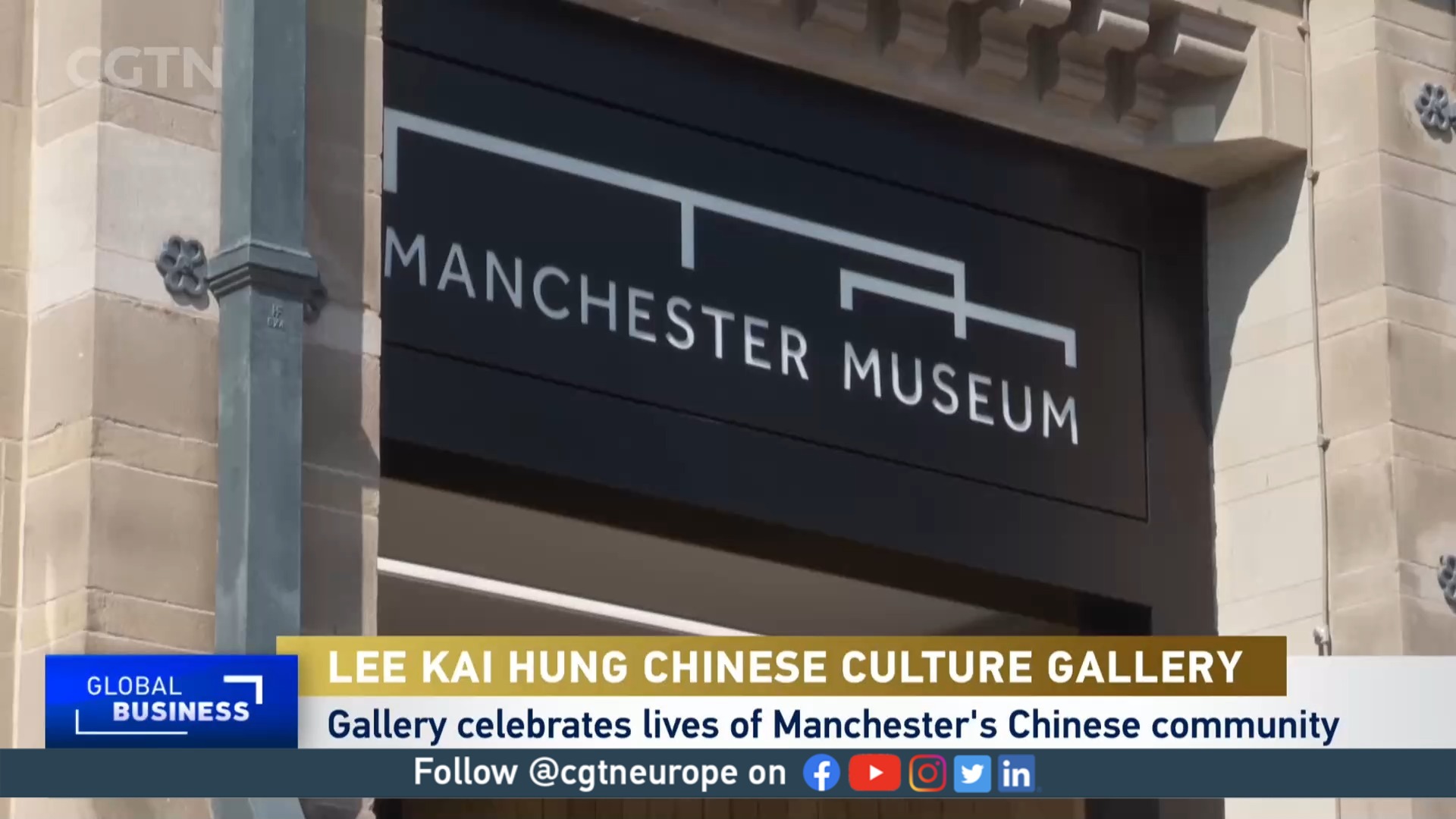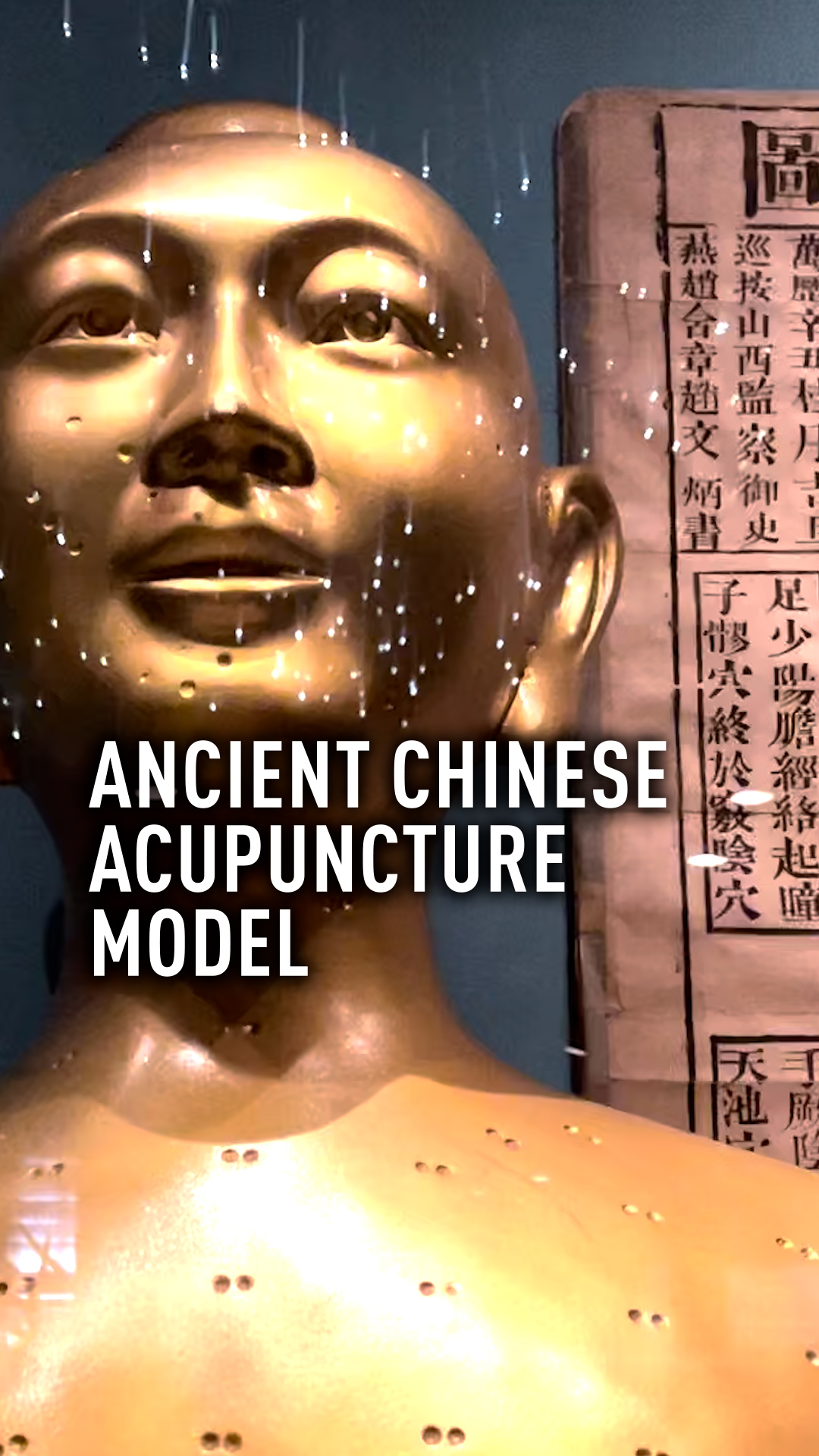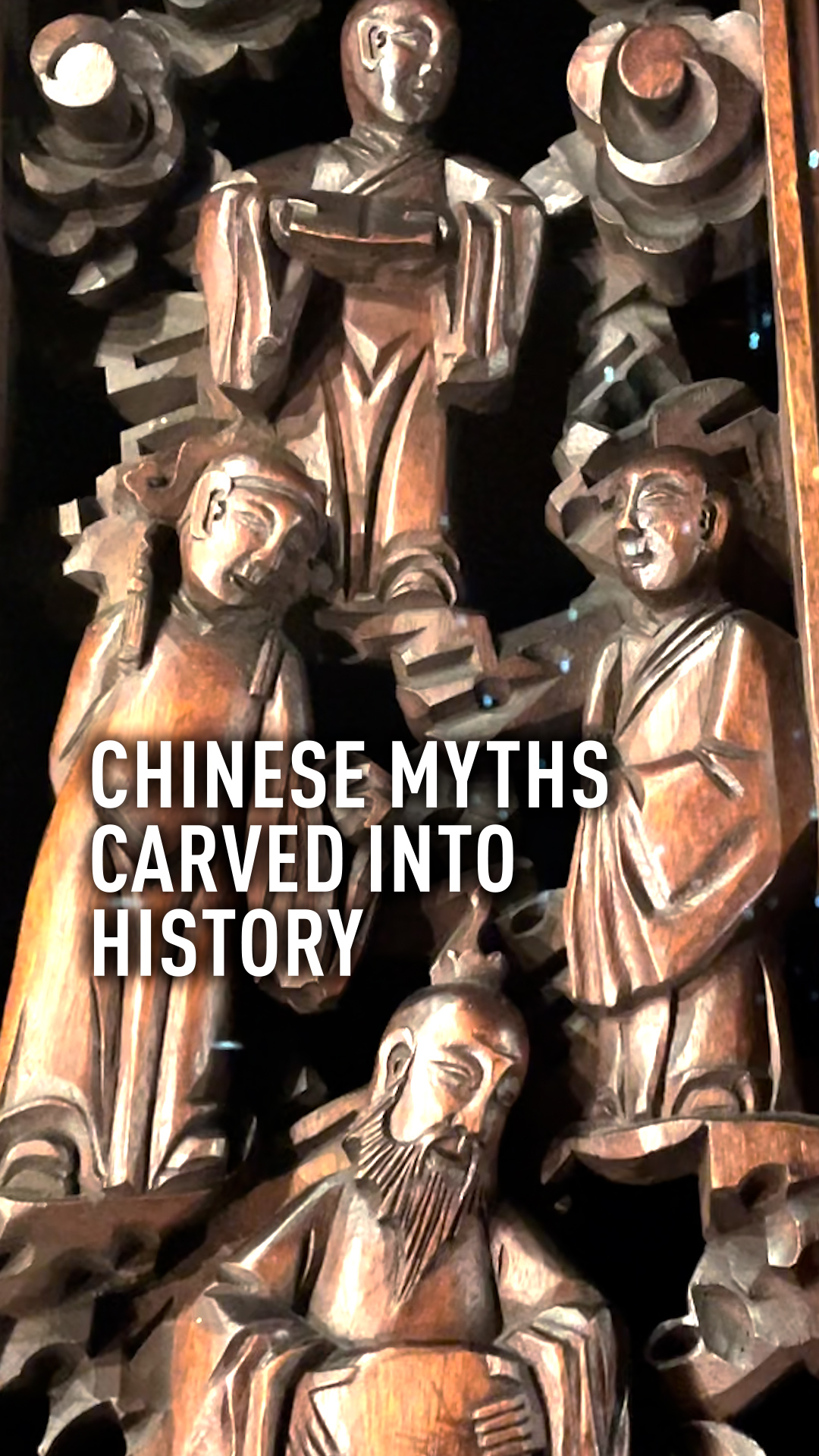02:47

Tucked away in the University of Manchester, a newly-opened exhibition featuring hidden Chinese treasures is poised to pique the interest of sinophiles.
Named after Chinese-British businessman Lee Kai Hung, the Chinese culture gallery showcases rarely-displayed collections of Chinese origin, ranging from a scroll that demonstrates a detailed and vivid picture of how Beijing residents celebrated Emperor Kangxi's 60th birthday in 1713 to antique Chinese furniture and traditional medicine.
01:18

Curator Bryan Sitch says there have been about 300,000 visitors to the gallery since February when it was re-opened to the public.
"The overall aim of [the] project is to develop a better understanding between people to work in a way that is more inclusive and more imaginative and to develop relationships between different communities in the city," said Sitch. "We felt it was really, really important to do that by creating a sense of empathy within the visitor."
Another objective of establishing the gallery is helping descendants of Chinese origin understand their forefathers' history.
"I think another aspect of this gallery is the fact that young Chinese children who are encouraged by their families to retain their understanding of Chinese culture and their language, who may be attending supplementary schools at weekends. The teachers are also bringing their children here so that they can see the material and display. And they can they can take a real sense of pride in China's material culture," added the curator.
00:48

Manchester's Chinatown had no name until 1970s
Manchester's Chinatown is the second largest in the UK, and it has been a standing witness of how Chinese immigrants first settled down in the city in the early 19th century and have flourished since.

A scroll shows a glimpse of Beijing life in 1713, with crowds of excited officials and ordinary citizens on the streets celebrating the 60th birthday of Emperor Kangxi. /CGTN
A scroll shows a glimpse of Beijing life in 1713, with crowds of excited officials and ordinary citizens on the streets celebrating the 60th birthday of Emperor Kangxi. /CGTN
A Chinese immigration wave to the UK surged in the 1950s, a time when Britain faced severe labor shortages and after the British Nationality Act 1948 was passed, which allowed easier access into the country.
"During the Second World War or slightly after most Chinese who settled down were actually merchant seamen... When they did stay behind, the main business was actually in the laundry business," says 68-year-old Gerry Yeung, who relocated with his father - a dim sum chef - to the country over fifty years ago.
"During the Fifties, a large number of Hakka people from Hong Kong migrated to the UK... They were actually originally farmers, but they came and set up restaurants," he added. "There was no Chinatown in Manchester until around the Seventies."
Yeung explains that the area now called Chinatown in Manchester was mainly composed of very rundown warehouses which Chinese businesses took over.

The landmark archway at Chinatown Manchester, completed in 1987. /CGTN
The landmark archway at Chinatown Manchester, completed in 1987. /CGTN
Yeung is one of the few Chinese immigrants in his generation who did not stay in the food catering business. His economic and social contribution to his adopted country led Yeung to be appointed Deputy Lieutenant of Greater Manchester in 2008.
"The Chinese community is relatively inactive politically. There are a number of the younger generation now going into local politics, but in terms of national politics, there is actually no significant presence," said Yeung.
However, a younger generation of British Chinese has been offering a growing economic contribution to the UK.
"In addition to food and catering, import and export, the second generation is moving to all sorts of professions - accountants, lawyers, doctors," said Yeung. "You are now seeing people doing logistics, people investing in UK companies, so I think the Chinese contribution to this country has been growing in the last 50 years."
Subscribe to Storyboard: A weekly newsletter bringing you the best of CGTN every Friday